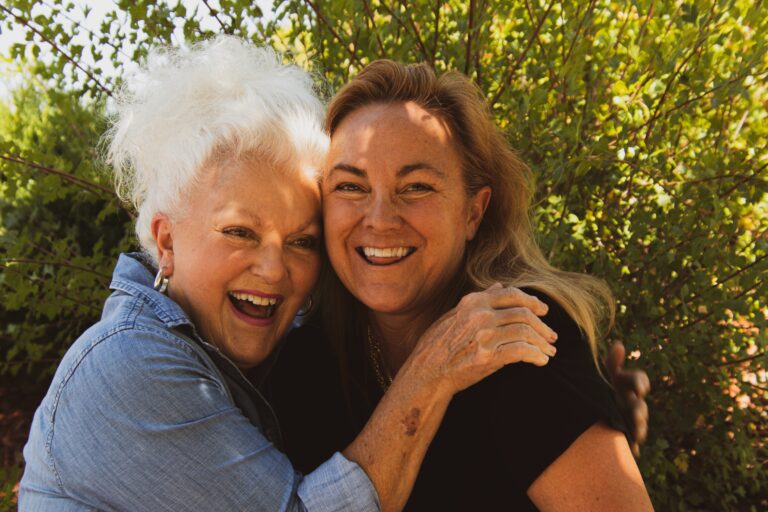As our loved ones age, their care needs change. While some seniors maintain independence well into their golden years, others might require more assistance. This can often lead to overwhelming decisions about what level of care is most appropriate. Whether you’re a senior yourself or are caring for an elderly loved one, understanding the various options available can offer clarity and peace of mind. In this guide, we’ll delve into the different levels of senior care to help you navigate this important journey.
1. In-Home Companionship
What it is: This is a non-medical service that offers companionship and basic assistance. It’s ideal for seniors who are mostly independent but might feel lonely or need someone around to ensure their safety.
Services include:
– Companionship
– Assistance with light housekeeping
– Meal preparation
– Medication reminders
– Errands and grocery shopping
Benefits: Seniors can remain in their own home, maintaining their usual routines and surroundings while having the added support and companionship of a trusted individual.
2. Caregivers (In-home care)
What it is: These are professionals trained to provide both non-medical and basic medical care to seniors within their own homes.
Services include:
– Personal care (bathing, grooming, and dressing)
– Medication management
– Mobility assistance
– Light housekeeping
– Meal preparation
Benefits: Like in-home companionship, seniors can remain in familiar settings but with additional medical and non-medical support. This ensures they’re taken care of without the need for institutional settings.
3. Senior Independent Living Communities
What it is: This is a housing option designed for active seniors who can largely take care of themselves. These communities offer social opportunities, maintenance-free living, and sometimes, amenities like pools, gyms, and more.
Services include:
– Housing (apartments or cottages)
– Social activities
– Community dining, based on location
– Maintenance services
– Transportation
Benefits: Seniors have the opportunity to live independently while enjoying the company of their peers. These communities are often bustling with activities, classes, and trips, offering a vibrant social life.
4. Assisted Living Communities
What it is: For those who need more assistance than independent living offers, assisted living provides a balance of care and independence.
Services include:
– Housing
– Personal care assistance
– Medication management
– Meals
– Social activities
– Housekeeping
Benefits: Seniors can receive the daily help they need while still enjoying a degree of independence. There’s usually a strong emphasis on providing a variety of social opportunities to keep residents engaged and active.
5. Nursing Homes (Skilled Nursing Facilities)
What it is: These are residential communities providing 24-hour medical care and supervision for seniors with more serious health issues.
Services include:
– Medical care
– Rehabilitation services
– Personal care
– Meals
– Social activities
Benefits: Nursing homes provide a high level of medical care for those who need it. Whether for long-term needs or short-term rehabilitation, they ensure that seniors receive comprehensive support.
6. Dementia Care (Memory Care Units)
What it is: These are specialized communities designed for individuals with Alzheimer’s disease, dementia, or other cognitive impairments.
Services include:
– 24-hour supervised care
– Structured activities tailored to individuals with memory loss
– Safe, secure environments
– Meals
– Personal care
– Medical management
Benefits: Memory care units provide a specialized environment for those with cognitive impairments. Staff is trained to understand the unique challenges faced by these individuals, ensuring they receive compassionate, effective care.
Are you choosing the right level?
Choosing the right level of senior care can be a daunting task, but it’s essential to remember that every person is unique. What works for one individual might not be suitable for another. The most crucial aspect is to ensure the safety, happiness, and well-being of your loved one. By understanding the different care options, you can make an informed decision that best meets the needs of your family. Remember, you’re not alone in this journey; there are numerous resources and professionals ready to assist. The road might seem long, but with love, understanding, and information, you can navigate it with confidence and care. If you have any additional questions or you are looking for someone to help you with senior care coordination, please reach out to me.

From a young age, Stacey’s link to the senior care industry grew alongside her mother’s work at a nursing home, where she often accompanied her. By her early teens, she secured her first official job at a nursing home, laying the foundation for a profound journey in senior care spanning over four decades. Her roles varied from opening assisted living and memory care residences to working in nursing homes and independent senior living communities. As the former Director of Fun for 300 independent seniors, she expertly organized daily events and trips. Stacey’s unwavering passion, nurtured by her family, and professional dedication as a recreation therapist, reflect her deep commitment to preserving the dignity and well-being of seniors.
Stacey’s senior care expertise has been recognized by the media including U.S. News and World Report and Care.com.
Stacey and her husband Bryan are the owners of the senior in-home care agency A Place At Home – North Austin.




